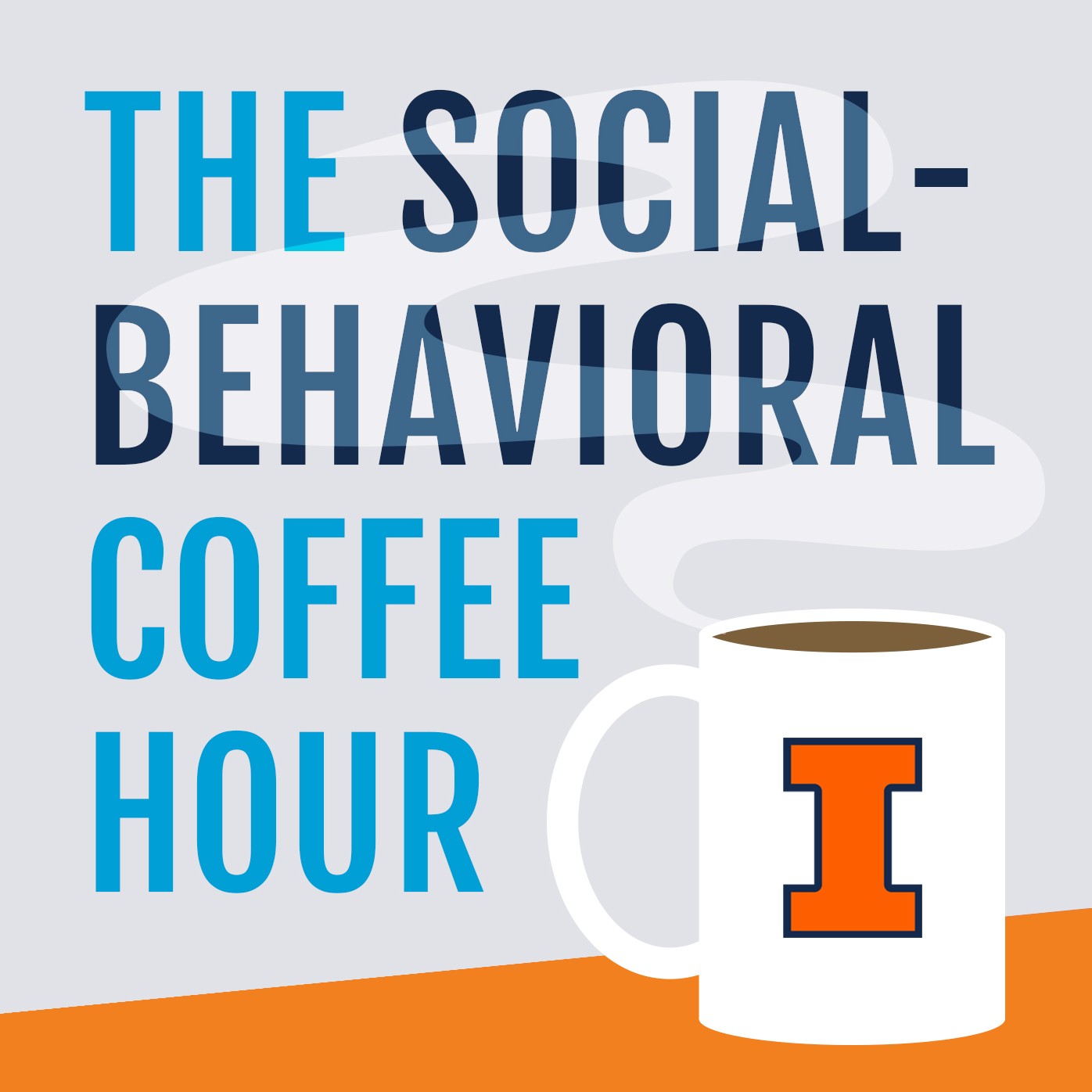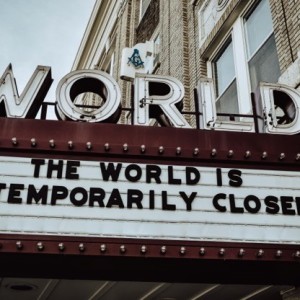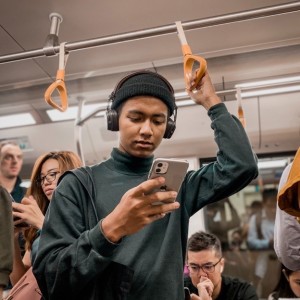
1.8K
Downloads
15
Episodes
Welcome to The Social-Behavioral Coffee Hour. This is a podcast series created by the Center for Social and Behavioral Science at the University of Illinois at Urbana-Champaign and hosted by Dr. Peter Ondish, a Research Scientist at CSBS. The purpose of our podcast is to showcase our researchers and to give voice to our community. We are researchers, practitioners, and all-around behavioral science nerds. We are glad you are here for the journey.
Welcome to The Social-Behavioral Coffee Hour. This is a podcast series created by the Center for Social and Behavioral Science at the University of Illinois at Urbana-Champaign and hosted by Dr. Peter Ondish, a Research Scientist at CSBS. The purpose of our podcast is to showcase our researchers and to give voice to our community. We are researchers, practitioners, and all-around behavioral science nerds. We are glad you are here for the journey.
Episodes

Monday Feb 22, 2021
Taking On COVID-19 at Cornell University
Monday Feb 22, 2021
Monday Feb 22, 2021
In August, thousands of students traveled back to their college campuses amid a surge in coronavirus cases across the nation. Dorms opened, varsity athletics resumed, and greek recruitment continued. These typical student activities, combined with what we know about the typical behaviors of college students, kindled the ideal coronavirus breeding ground. Facing a deadly pathogen and a lot of uncertainty, some colleges confronted large outbreaks, while others successfully kept infection rates down. Cornell University happens to be one of the successful universities in managing the spread of COVID-19.
This episode will investigate the story behind Cornell’s success. Dr. Brent Roberts will talk with Dr. Peter Frazier, who is an associate professor at Cornell University and an expert in COVID-19 data modeling. They will discuss Cornell’s "behavioral compact” strategy and behavioral compliance with Cornell’s rigorous health and safety protocols. Dr. Frazier with conclude with several recommendations on what universities can do to effectively manage the spread of coronavirus on campus.

Friday Dec 04, 2020
Mental Health During Times of Crisis
Friday Dec 04, 2020
Friday Dec 04, 2020
Oftentimes, natural disasters cause not only physical damage, but also they can become an agent for many secondary mental health adversities–especially within youth populations.
In the latest CSBS Podcast episode, CSBS team members, Cristina Alvarez and Kaylee Lukacena, speak with Dr. Tara Powell, Associate Professor in the School of Social Work, on the topic of mental health and youth, especially during times of crisis. They discuss both the virtual pilot studies and the proven methods alike, including the Journey of Hope Intervention program, that focuses on normalizing emotions, coping strategies, peer support and other protective factors.
Dr. Powell addresses how mental health providers are tackling these challenges, and more largely, she shares some tips on coping with mental exhaustion, uncertainty, and staying connected during difficult times.

Friday Oct 09, 2020
The Promising and Perilous Case for Smartphones in Mental Health Services
Friday Oct 09, 2020
Friday Oct 09, 2020
Smartphones have radically changed our world. They’ve changed how we work, how we connect with others, how we date, and how we manage our finances, to name just a few things. Recently, they’ve also changed how individuals with mental health conditions receive services. For example, smartphones have changed the ways in which clinicians check in with their patients, and how patients with similar symptoms develop support networks. But like most technological advances, smartphones come with as many problems as they do promises. For example, for patients with schizophrenia, video conferencing has the potential to backfire and trigger symptoms of paranoia.
In this episode, we’ll talk with Dr. Christopher Larrison–a professor at the University of Illinois School of Social Work–about the promising and perilous aspects of using smartphones in community and mental health spaces.

Monday Jul 20, 2020
Keeping Active During a Pandemic
Monday Jul 20, 2020
Monday Jul 20, 2020
We all know that exercise is generally good for our physical health, but creating healthy exercise habits and sticking to them is easier said than done. How can we pick up and stick with our exercise routines? To provide extra motivation, we will also consider the ways in which exercise can help improve mental health, well-being, and even cognitive function. We will talk with two University of Illinois exercise science experts, Assistant Professor Neha Gothe and Associate Professor Sean Mullen, from the Department of Kinesiology and Community Health. Together, we will discuss how to make our bodies work better for us in the time of COVID-19.
* [13:25] Prof. Sean Mullen mentions poi swinging as an example of exercise. To learn more about this exercise, use the link provided here: https://www.youtube.com/watch?v=W9aTK5B4vSA&list=PL5C5ABED4E26B91B2&index=4

Friday Jun 19, 2020
Understanding Food Insecurity with Prof. Craig Gundersen
Friday Jun 19, 2020
Friday Jun 19, 2020
Food insecurity is recognized as a major health crisis in the United States. More than 42 million persons were food insecure in 2015, and many negative health outcomes are attributable to food insecurity. In this episode, we talk with University of Illinois Professor Craig Gundersen on the measurement, causes, and consequences of food insecurity. We discuss why solving the issue can be challenging, and why programs like the Supplemental Nutrition Assistance Program (SNAP) can be effective. Finally, we discuss how COVID-19 has affected the fight to end food insecurity.
